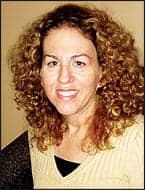 |
In the memorable scene from 1967’s iconic film The Graduate, up-and-comer Benjamin Braddock is tipped by his dad’s business partner on how to seal his future. Mr McGuire says, “I want to say one word to you. Just one word. Are you listening?” Benjamin says yes, to which Mr McGuire responds… “Plastics.”
In the world of clinical labs today, the buzzword is “Genomics.” People are living long enough to experience age- and lifestyle-related conditions, and the potential for molecular diagnostics to spur an explosion in clinical diagnostics and personalized medicine seems golden.
Cancers are in the crosshairs of diagnostic companies such as Beckman Coulter, Fullerton, Calif, and Pathwork Diagnostics, Sunnyvale, Calif. Virginia Commonwealth University School of Medicine has begun an investigational study of the Pathwork Tissue of Origin Test, which helps determine a tumor’s origin so tissue-specific management can begin (CLPrime, November 14). The test is the focus of a study published this month in the Journal of Molecular Diagnostics.
Agreements between Beckman Coulter and Johns Hopkins University grant Beckman exclusive options to license cancer genomics intellectual property. The agreement covers sequencing services and options to license genomic intellectual property (CLPrime, November 7).
DiaGenic ASA, Norway, has developed an assay for Alzheimer’s disease. Harvard Medical School-Partners HealthCare Center for Genetics and Genomics, Boston, has developed and is offering an Affymetrix-based test for diagnosing hypertrophic cardiomyopathy.
The theme of the AACC’s San Diego Conference in March is “Genomic Technologies at the Interface of Diagnostics and Therapeutics.” Participants will learn how molecular and genetic tools “can be the catalyst of synergy in the combined field of diagnostics and therapeutics/drug discovery.”
Diagnostic centers across the country are refining molecular diagnostic tests to add this capability to their labs. Knome, Cambridge, Mass, a personal genomics company, offers sequencing and analysis services to individuals for $350,000 and up.
All of these advancements are headed in the direction to impact clinical diagnostics.
Last year at this time, CLP’s editor, Cheryl Woodruff, touted the magazine’s redesign and fine-tuned contents. She will begin 2008 on a new path, having recently left CLP to pursue a career in psychological counseling.
Suzanne Clancy takes the reins this month as CLP’s new editor. She recently served as senior manager of corporate communications at Nanogen, San Diego, and has worked at the Burnham Institute and the Salk Institute, both in La Jolla, Calif. She earned a bachelor’s degree in biology from Cornell University and a PhD in genetics from Stanford University. We look forward to Suzanne’s imprint in the coming issues.
Happy New Year!
Judy O’Rourke



